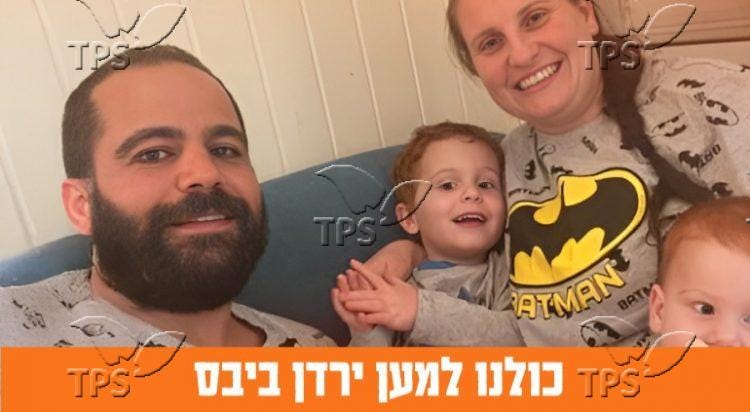As Jews around the world gather to tell the story of our exodus from Egypt, we fulfill a sacred commandment:
“Ve’higadta levincha bayom hahu” — “You shall tell your child on that day.”
Passover is not merely a remembrance of suffering and liberation; it is a reenactment — a national ritual through which we pass our collective memory and mission to the next generation. The Haggadah doesn’t just retell the past — it equips our children to carry the future.
But what happens when the children themselves are broken?
When they are the ones whose lives are shattered, whose families are torn apart, whose innocence is stolen by war and terror?
This is where Lehosheet Yad — “To Extend a Hand” — does holy work. This is the same organization that helped raise funds for Yarden Bibas, whose wife and young sons were murdered by Hamas.
You may have seen Lehosheet Yad’s recent video — a trip with children who were kidnapped and held hostage in Gaza, now returned but bearing the invisible scars of trauma. Lehosheet Yad gave them not just a trip, but a moment to laugh, a hand to hold, and the knowledge that they are not alone. That they are still children — and still loved.
Now, they are expanding their mission to include the orphans of October 7th — children who lost their parents, some who lost both. Among them are the Idan and Tasa families. The Tasa boys are the sons of a father who jumped on a grenade to save them — an act of ultimate love and sacrifice. One of the boys lost his eye in the explosion.
These are not stories from the past. These are real, living Jewish children. And they are ours.
The Torah tells us:
“And God saw the children of Israel, and God knew.” (Exodus 2:25)
When their cry of anguish rose up, God knew” — not just their suffering, but that surviving slavery was not enough.
He knew that nothing less than a land of their own would guarantee true freedom.
It was by a strong hand that God made the journey from slavery to freedom possible.
So too, we must extend our hand to sustain the next generation.
These children are not only survivors.
They are future soldiers, future teachers, future parents, future guardians of our land, our heritage, our memory.
They are the living answer to Amalek, the eternal enemy who strikes the weak and the weary.
And they will rise — if we lift them.
Lehosheet Yad is trusted, effective, and urgently needed.
These are not someone else’s children. They are ours.
And they are crying out. Let’s answer to the best of our ability.




